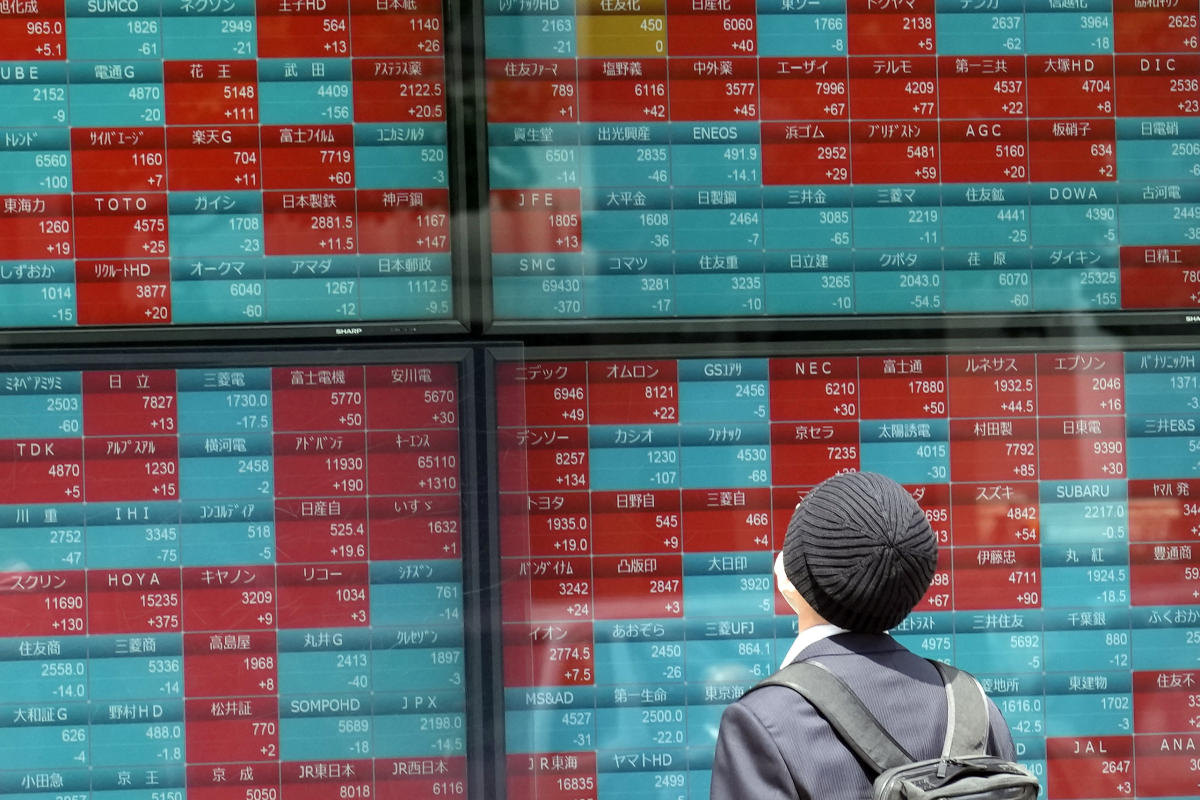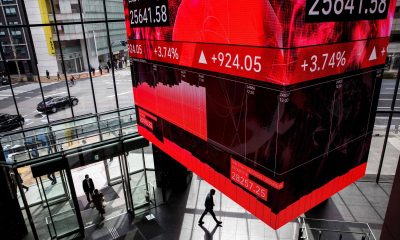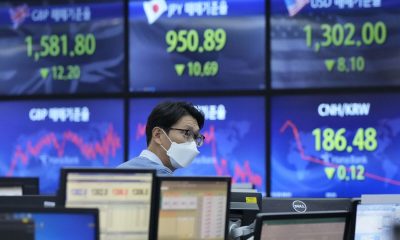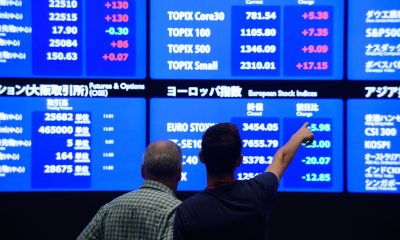Stock Markets
As Nikkei soars, Japanese investors rush for the exits

As foreigners pile into Japan’s steepest stock market rally in years, local investors have been furiously cashing out or even betting against what many see as the beginning of a long-overdue era of profitability and returns.
The Nikkei share average closed out its best month in 2-1/2 years on Wednesday, riding a wave of foreign cash and optimism for corporate reform that has taken it to heights not seen since the country’s asset bubble burst three decades ago.
Yet Japanese investors have been heavy sellers. In April and May, domestic outflows totalled around 2 trillion yen ($14.81 billion) for individual investors and over 2.2 trillion yen for Japanese institutions.
While foreign investors are excited about the prospect of a new era of growth in corporate Japan, domestic investors are eager to catch any profits they can, sticking to a strategy born out of decades of fleeting rallies.
That means future gains may rely on foreigners, who are bullish but notoriously slow to act in size and wary of a market that’s been disappointing for a generation.
“It has been a trend that retail investors sell stocks at a peak. This time short-term investors sold stocks as they were cautious about the sharp gains of the Nikkei,” said Shoichi Arisawa, general manager of the investment research department at IwaiCosmo Securities.
“Long-term investors also sold stocks because they were saddled with losses after the Nikkei made a range-bound move for a long time.”
The country’s retail investors, who hold about 17% of domestic shares, are often net sellers in rising markets, according to strategists, looking to book their profits.
Rakuten Securities strategist Masayuki Kubota said domestic retail investors were the main driver of the market before the collapse of Japan’s bubble economy in 1990, while foreigners were net sellers.
“After the bubble burst, foreigners turned to net buyers and it has been like that for 30 years,” Kubota said.
The benchmark Nikkei and the broader Topix have long frustrated local and overseas investors alike as companies focused on market share ahead of shareholder returns.
But the Tokyo Stock Exchange’s push for better corporate governance and headline-grabbing purchases from famed investor Warren Buffet have propelled the Nikkei to an 18% rise in 2023, making it Asia’s best performing stock market.
“I sold some (when the Nikkei hit a 33-year peak last month) to lock in profits but kept most of them. I even bought some on the dip,” said Ohara, a Tokyo-based investor in his early 30s who only provided his last name.
Ohara said he would sell some of his stocks if the yen strengthened but was looking to add to his portfolio and expects Nikkei to rise further.
Others seem to be actively betting against the tide.
Nomura’s Next Funds Nikkei 225 Double Inverse Index ETF has been popular with individual Japanese speculators in the past and has been in demand this year.
The fund is designed to pay investors two times the opposite of the Nikkei’s daily return, by taking short positions in Nikkei futures.
The fund has seen inflows of nearly $1 billion in the past two months, according to Refinitiv Lipper data, with $579 million in inflows in April the biggest since November 2020.
While domestic and foreign investors are at the opposite ends of the trade, large investors have so far sat out the rally on worries that Nikkei will yet again disappoint and the uncertainty over the Bank of Japan policy outlook.
Analysts polled by Reuters last week expect the benchmark index to return to the psychologically key 30,000 level by year-end, with responses varying widely, revealing a deep split over the Nikkei’s outlook.
A Tokyo-based lawyer in his 60s, who asked not to be named, said Nikkei’s sudden rally was a signal to get out. “I would think that investing in bonds might be better under this environment.”
($1 = 135.0500 yen)
Stock Markets
Suburban Propane director Logan sells $139k in shares
Stock Markets
Stock market today: S&P 500 closes lower, but posts big weekly win
Stock Markets
TD Bank promotes Laura Nitti to retail market president role

 Forex3 years ago
Forex3 years agoForex Today: the dollar is gaining strength amid gloomy sentiment at the start of the Fed’s week

 Forex3 years ago
Forex3 years agoUnbiased review of Pocket Option broker

 Forex3 years ago
Forex3 years agoDollar to pound sterling exchange rate today: Pound plummeted to its lowest since 1985

 Forex3 years ago
Forex3 years agoHow is the Australian dollar doing today?

 Cryptocurrency3 years ago
Cryptocurrency3 years agoWhat happened in the crypto market – current events today

 World3 years ago
World3 years agoWhy are modern video games an art form?

 Commodities3 years ago
Commodities3 years agoCopper continues to fall in price on expectations of lower demand in China

 Economy3 years ago
Economy3 years agoCrude oil tankers double in price due to EU anti-Russian sanctions

































